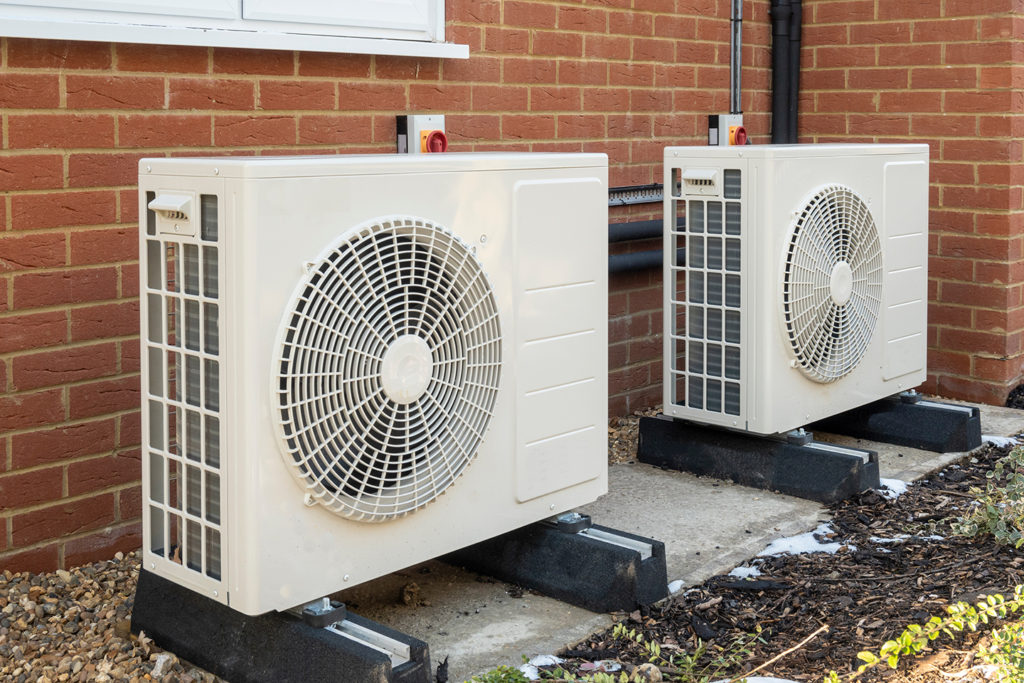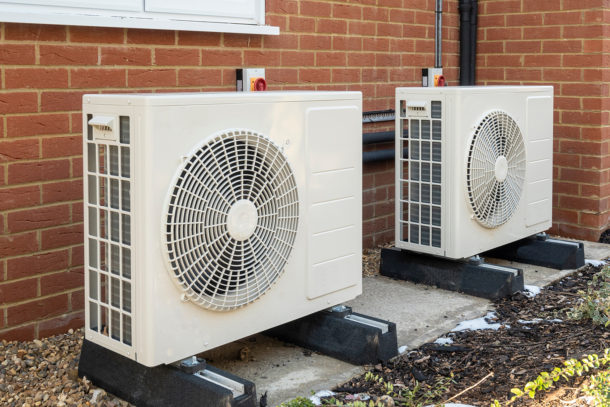How to Troubleshoot a Heat Pump That’s Not Working: A Comprehensive Guide
With winter here, a malfunctioning heat pump can be a significant concern for homeowners. Heat pumps are designed to provide efficient and cost-effective heating and cooling solutions, but it can be frustrating and uncomfortable when they fail to work. We will discuss a step-by-step guide on how to troubleshoot a heat pump that’s not working, helping you identify the issue and get your system up and running again.
To Troubleshoot a Heat Pump, It is Important to Understand Heat Pumps
Before we dive into troubleshooting, it’s essential to understand how heat pumps work. A heat pump is a device that transfers heat from one location to another rather than generating heat from fuel. It works by circulating a refrigerant through a system of coils, extracting heat from the outside air, and transferring it to the indoor air. Heat pumps can be used for heating and cooling, making them a popular choice for many homeowners.
Common Issues with Heat Pumps
Heat pumps are generally reliable and efficient, but like any mechanical system, they can experience issues. Some common problems that may cause a heat pump to malfunction include:
- Low refrigerant levels
- Clogged air filters
- Faulty thermostats
- Frozen coils
- Electrical issues
- Malfunctioning compressors

A Step-by-Step Guide to Troubleshoot a Heat Pump
To troubleshoot a heat pump that’s not working, it’s essential to follow a systematic approach to identify the issue. Here’s a step-by-step guide to help you get started:
- Check the Power Source
Ensure that the heat pump is receiving power. Check the circuit breaker or fuse box to ensure that the breaker hasn’t tripped or a fuse hasn’t blown. If the issue persists, check the electrical panel to ensure the heat pump is wired correctly.
- Inspect the Air Filters
Dirty or clogged air filters can significantly reduce airflow and cause the heat pump to malfunction. Check the air filters and replace them if necessary. Make sure to check both the indoor and outdoor units.
- Check the Thermostat
Faulty thermostats can cause the heat pump to malfunction. Check the thermostat settings to ensure they are set to “heat” mode and the correct temperature. If the issue persists, try resetting or replacing the thermostat if necessary.
- Inspect the Coils
Frozen coils can cause the heat pump to malfunction. Check the outdoor coils for signs of frost or ice buildup. If you find any, turn off the power to the heat pump and let it thaw before restarting.
- Check the Refrigerant Levels
Low refrigerant levels can cause the heat pump to malfunction. Check the refrigerant levels and top them off if necessary. However, it’s essential to note that refrigerant leaks can be hazardous, so hiring a professional to perform this task is recommended.
- Check the Compressor
A malfunctioning compressor can cause the heat pump to malfunction. Check the compressor for signs of wear or damage. If you find any issues, it may be necessary to replace the compressor.
- Check the Electrical Connections
Faulty electrical connections can cause the heat pump to malfunction. Check the electrical connections and ensure that they’re secure and not damaged.
- Call a Professional
If you’ve tried the above steps and the issue persists, it may be necessary to call a professional HVAC technician to diagnose and repair it. They’ll have the required tools and expertise to identify the problem and provide a solution.
Preventative Maintenance
Preventative maintenance is essential to ensure your heat pump runs efficiently and effectively. Here are some tips to help you maintain your heat pump:
- Regularly clean the air filters
- Check the refrigerant levels annually
- Inspect the coils for signs of frost or ice buildup
- Check the thermostat settings and ensure that they’re set correctly
- Schedule annual maintenance with a professional HVAC technician
It isn’t easy to troubleshoot a heat pump that’s not working, but these steps will show you how to identify the issue and get your system up and running again. Remember always to follow safety precautions when working with electrical systems, and if you’re unsure about any aspect of the troubleshooting process, it’s always best to call a professional. By performing regular maintenance and staying on top of potential issues, you can ensure that your heat pump runs efficiently and effectively for years.


